Many fans of the Presely’s were not only blessed with one biography picture, but two the last couple years with Baz Luhrmann’s “Elvis” coming out in 2022 and Sophia Coppola’s “Priscilla” which came out the following year. While the films center around the same last name, the two are in fact very different stories.
“Elvis” tells the story of the late international star about his upbringing, rise to fame, and relationship with his manager Colonel Parker which ultimately led to his downfall. Presley and Parker signed a five year contract to perform at the International Hotel in Las Vegas twice a year for four weeks at a time. Although the singer was hoping to travel and sing to his adoring fans from all over the world, this contract binded him to the States where he performed until his last breath.
Luhrmann’s biopic is flashy and full of color which perfectly embodies the spirit of Presley and the aesthetic that he amplified. The movie never lingered on a shot during fast-paced moments in the film for more than five seconds which gave the audience the feeling of the late singer’s larger-than-life persona. It felt almost like a collage of Presley’s life played out leading to the heartbreaking end of his life. Surprisingly, this film is told from the perspective of his manager and partner, Colonel Parker, rather than from Presley’s perspective. This aspect shockingly works as it puts a fresh lens on his life story as well as walking the viewer through the highs and lows of the singer’s crazy career. We are taken on a carnival rollercoaster ride of the Elvis Presley empire throughout the film which is a fresh take in a musical biopic that hasn’t been done before. The fantastical elements Luhrmann usually brings into his films (“The Great Gatsby” and “Romeo + Juliet”) brings the story to life and works hard to convey the amount of power Presley’s name still holds to this day.
While there are many things that did work for this film, there were some disappointing aspects. One being Tom Hanks’s performance as the infamous Colonel Parker, but even bigger than that, all of the glossed over depth of Presley’s complexities not being explored.
“Elvis” is a great watch for going through the singer’s career, the emotions that came with it, the chaos, and is ultimately a ticket to the Elvis everyone knows and loves. However, the only behind-the-scenes aspect explored in this film is his partnership with his manager. While the film does introduce conversation of Presley’s success undermining and ripping off many black artists and his unlawful relationship with Priscilla Presley, it never dwells in the conversation as much as it should, which is why Coppola’s “Priscilla” makes it all the more captivating.
The famous love story of Elvis and Priscilla Presley has rained for decades ever since the year 1959 when they first met. Looking back at the relationship now, it has stirred up lots of controversy and conversation surrounding Priscilla’s young age of 14 when first meeting Elvis who was 24 at the time. While Luhrmann’s “Elvis” doesn’t explore their relationship too much into detail, Coppola’s “Priscilla” is the heart of it. With Priscilla Presley herself producing the movie, this film explores their relationship from the beginning to the utter chaos through the lens of Priscilla and based on her memoir “Elvis and Me”.
“Priscilla” is the complete opposite of “Elvis” through dark aesthetics contrasting with the bright flashes Luhrmann gave us. This aspect perfectly captures Priscilla’s uncolorful world without Elvis. The film does a great job of enrapturing an impressionable 14 year old’s interiority with Elvis’s lonesome and innocent state of mind. Jacob Elordi’s rendition of playing the rock-and-roll king was more than convincing to watch. Although nobody could ever top Austin Butler’s performance as Elvis in the 2022 biopic (which led him a nomination for an Academy Award), Elordi portrays a more complex Elvis, the one we don’t know and love, which adds more layers to the film’s tone.
Cailee Spaeny’s performance as Priscilla was nothing short of stunning. Her ability to capture the nervousness and undying approval of the King with just a fleeting glance is incredible to watch. Spaeny brings Priscilla to life by not coming off as trying to do an impression of the real-life woman, but really studies her and seeps into the feelings of isolation and loneliness. The yearning for Elvis’s love and attention is written all over the film making the audience enclosed in the feeling that nothing will be enough to gain attention from the most famous man in the world, not even the love of his life.
What makes this film so special is because of its boldness in not only capturing the dark side of Elvis, but being fooled by it. Through the lens of Priscilla, we are able to strongly sympathize with both of the characters while also zooming out and looking at their relationship through our culture today and our view of gender roles within relationships in the 60s era. “Priscilla” dares to open that conversation and does not gloss over the relationship’s problems unlike “Elvis”. Coppola gives the audience access in “Priscilla” to be a fly on the wall in Priscilla’s life through the small things, the longing stares, muted colors, vulnerable tone, and overall set production. Instead of building the film around the story, she builds it around the characters examining the internal components with nuance. She carefully crafted the story by giving shape and definition to the eyes of a young woman whose story has been too often cast aside when discussing the famous singer.
One of the saddest realizations watching “Priscilla” is knowing that they were both birds in gilded cages. Elvis to his stardom, and Priscilla to her love for him. What makes Coppola’s film the better biopic was in fact because of the stripped down truth of the complexities of Elvis Presley making “Elvis” come across as ignorant in that regard. At the end of the day, everyone knows Elvis’s story, and it was beautifully told in Luhrmann’s film. However, no one knows the perspective of Priscilla’s which was the more vital, and interesting story to tell. It is more humanizing, intimate, and adds something to a story sewn together by glamor and flashing lights.


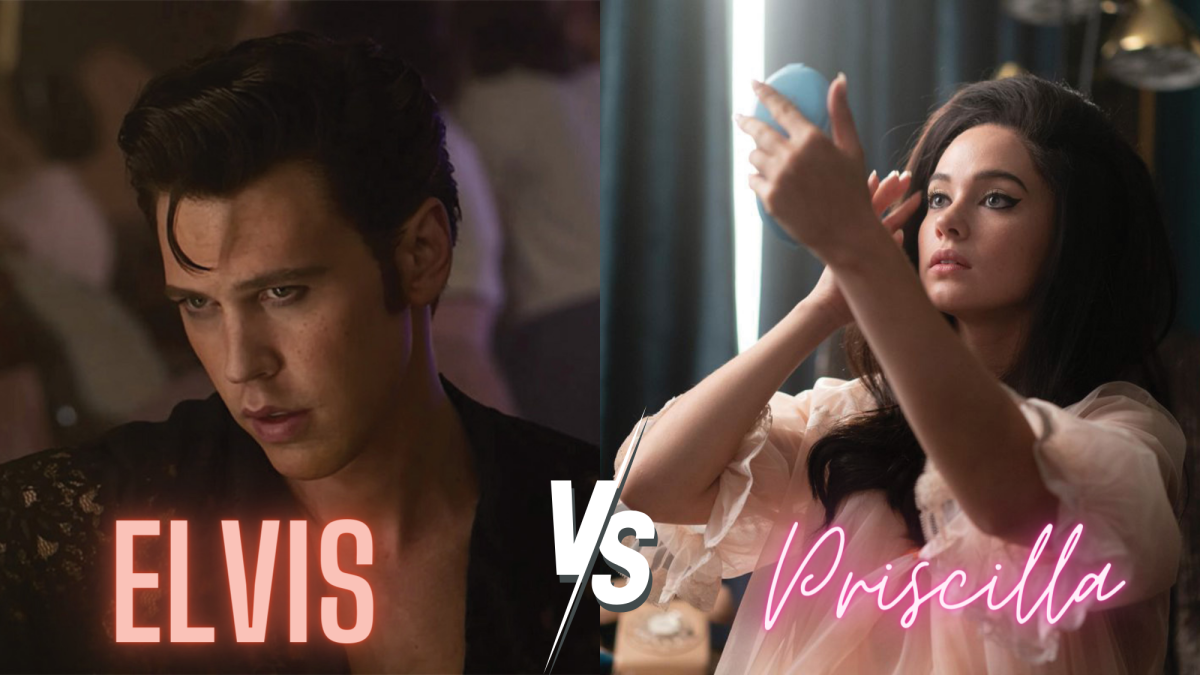
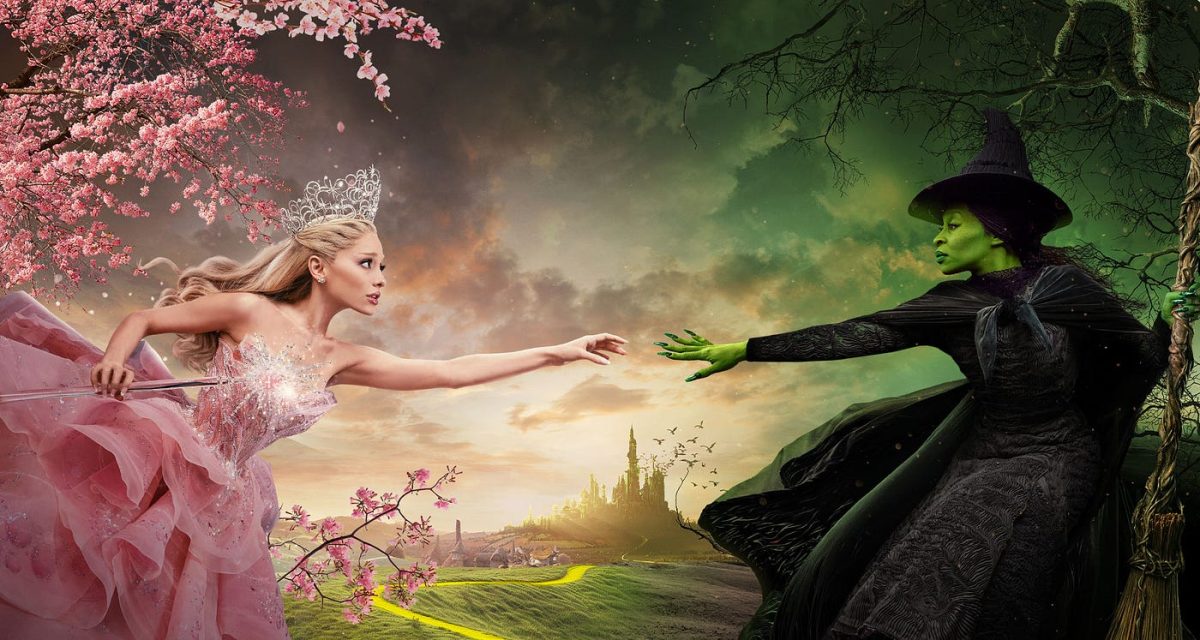
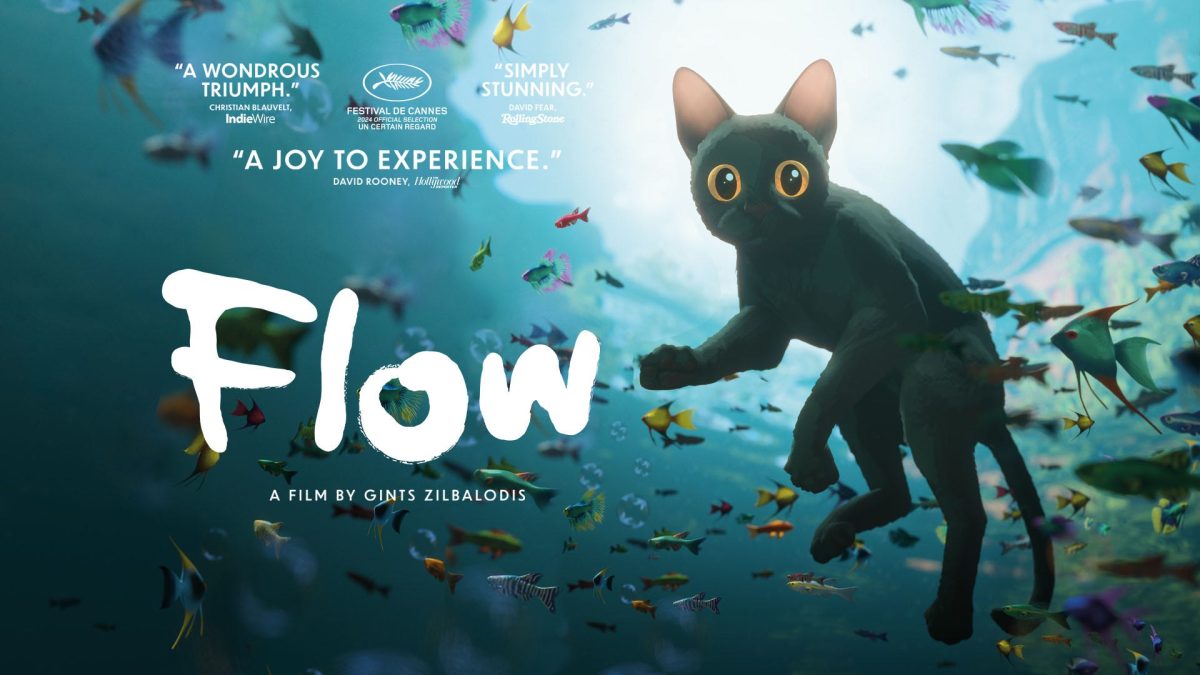





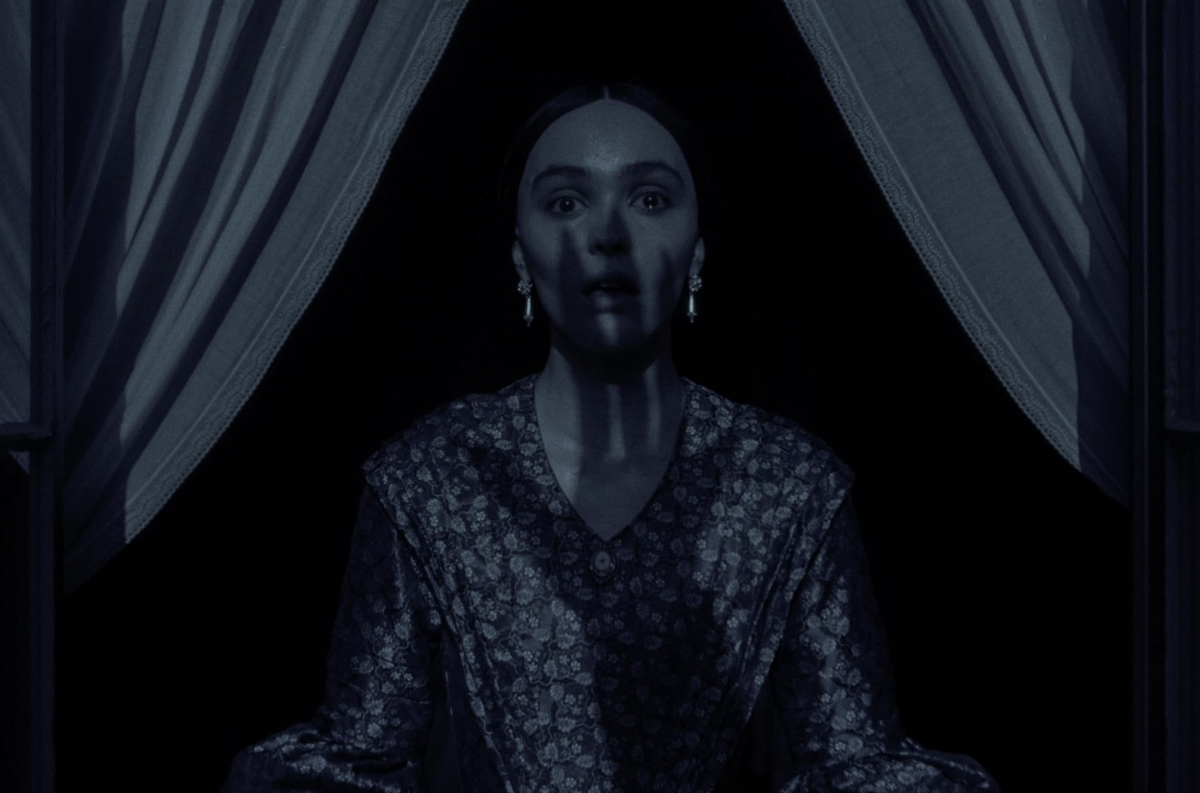

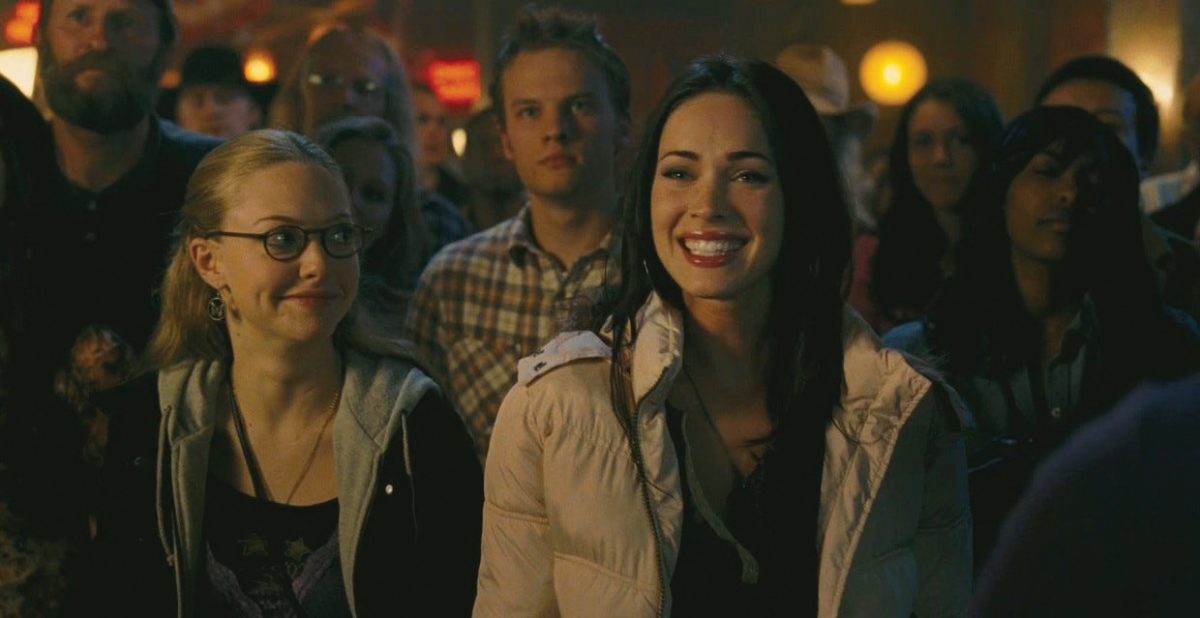
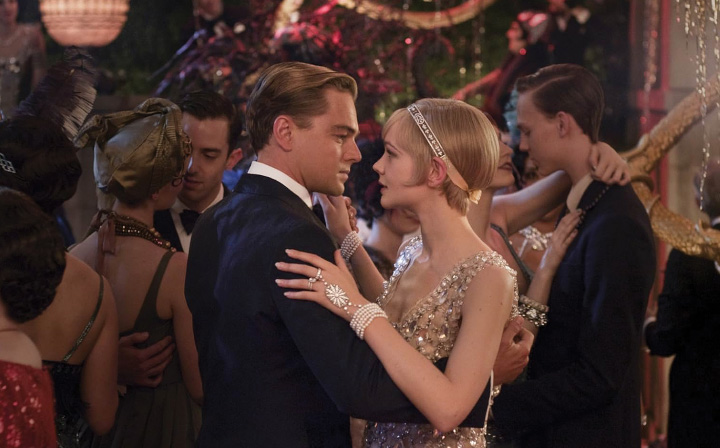
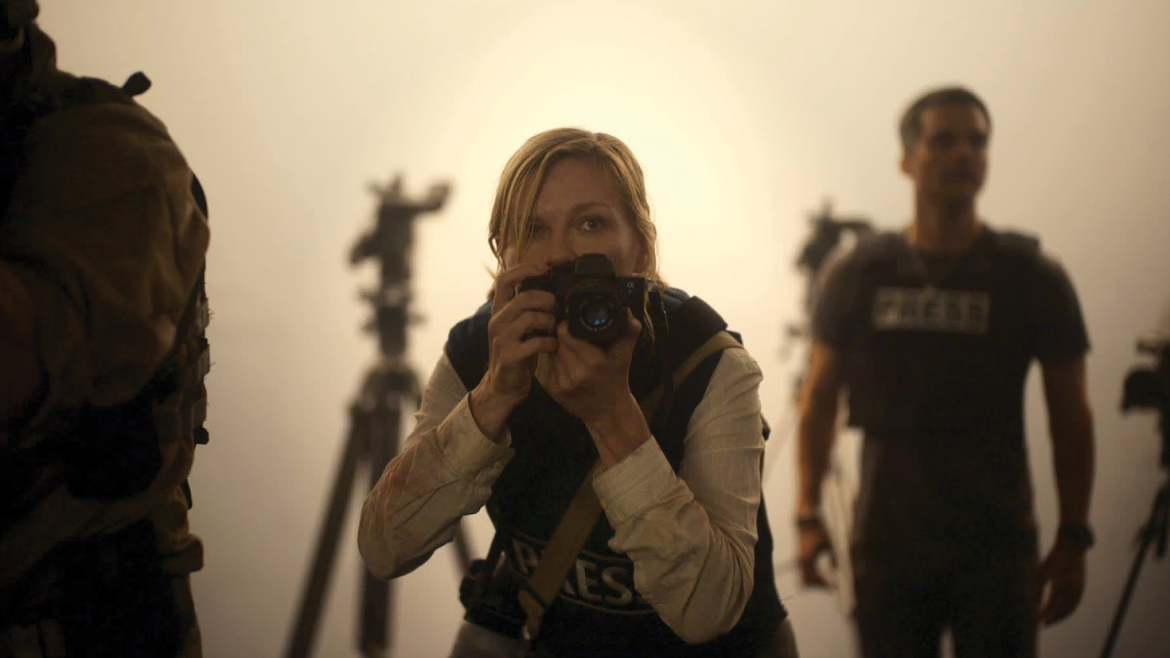

Guillermo Perez Arguello • Mar 6, 2024 at 10:34 am
Like Charles Chpalin said about the success of Elvis Presley, whom he had yet to see, or hear, in November of 1956, to his frined, a critic while in exile in Switzerland and who was attacking Presley. “He must have IT, as you cant fool the PUBLIC”. What convinced him wasa piece of a magazine’s clip indicating he had garnered 60.7 million viewers for the CBS network and Ed Sullicvan the previous September 9. The same applies with these two movies. One grossed nalnost 300m, streamed 4.1 billion minutes and sold 800,000 copies in the video market. It also garnered 225 nominationa, including 8 Oscars, and had 93 wins., “Priscilla” will never make a profit, and that should answer the headline. In other words, “You cant fool the PUBLIC”.